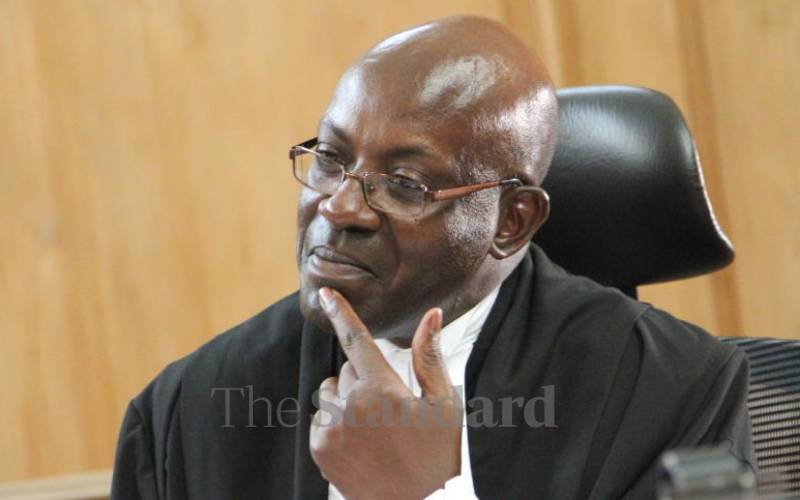×
The Standard e-Paper
Smart Minds Choose Us

Justice Sankale Ole Kantai. [Willis Awandu, Standard]
Days after being cleared of murder investigations by the Director of Public Prosecutions, Court of Appeal judge Sankale ole Kantai has trained his guns on the top police brass over what he termed an ‘unnecessarily dramatised’ arrest which injured his reputation.